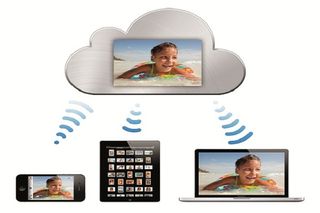Lessons the enterprise can learn from the iCloud photo leak
iCloud security isn't the problem, argues Davey Winder. Lack of knowledge about how to implement it is

The supposed Apple iCloud "breach" made TV news bulletins last week, which is no surprise given that it centred around the leaking of naked female celebrity photos.
It was also no big wow that Apple quickly responded to such a major reputational shafting by insisting it takes security very seriously (yada yada yada), and had not been 'hacked' and will take steps to ramp up account protection in future.
That ramping up will include, as IT Pro reported at the end of last week, email and push notifications when password changes are attempted and if iCloud data restoration to a new device is requested, as well as when someone attempts to log in from a previously unknown device.
In an ideal world you'd be able to inject employees with a drug to prevent them from acting like idiots, or at the very least exert complete control over the devices and services they use.
Some, including myself, would argue Apple should be doing this already. It's pretty much right there in the first chapter of Cloud Security for Complete Newbies, after all.
Flick to chapter two of this virtual tome and the heading would probably be something like 'Use Two-Factor Authentication' which, funnily enough, Apple also says it will be encouraging more people to do now.
Before the fanboys start sharpening their pen protectors in readiness for attack, I had better add that this isn't an attack on Apple; it's an attack on pathetic security measures.
The iCloud hack was as much to do with the usual lack of security awareness on the part of users as it was a lack of security understanding by Apple, which allowed hackers using the iBrute tool to repeatedly submit potential passwords to Apple's Find My iPhone service login page without locking them out.
Get the ITPro. daily newsletter
Receive our latest news, industry updates, featured resources and more. Sign up today to receive our FREE report on AI cyber crime & security - newly updated for 2024.
But what lessons can the enterprise learn from this? That's simple:
1. No organisation is too big to get it wrong, and everyone has to keep their eye on the ball. Unfortunately, users are mostly blind and didn't even know there *was* a ball.
2. iCloud may well impact your security even if you don't take naked photos of the CEO with an iPhone.
Roll both of these lessons into one and out spits the little insecure nugget that the iCloud keychain will happily store login credentials, synced across Apple devices, in the iCloud.
That users can opt to backup that keychain data locally, but tend to take the easiest route and just leave it in the cloud with just a password and pin for protection, is another incident waiting to happen.
It's back to the eyes thing, use them and ensure that data is not being stored in iCloud that you do not want to be there; and that the data which is stored in the cloud is properly encrypted and protected.
In an ideal world you'd be able to inject employees with a drug to prevent them from acting like idiots, or at the very least exert complete control over the devices and services they use.
As neither are likely in the real world, then a combination of policy, awareness training and multi-factor authentication will have to do. Oh, and never forget that it's all about the data at the end of the day, so ensure the data which really matters is at the heart of your security policy and things become a lot more straightforward.
Davey is a three-decade veteran technology journalist specialising in cybersecurity and privacy matters and has been a Contributing Editor at PC Pro magazine since the first issue was published in 1994. He's also a Senior Contributor at Forbes, and co-founder of the Forbes Straight Talking Cyber video project that won the ‘Most Educational Content’ category at the 2021 European Cybersecurity Blogger Awards.
Davey has also picked up many other awards over the years, including the Security Serious ‘Cyber Writer of the Year’ title in 2020. As well as being the only three-time winner of the BT Security Journalist of the Year award (2006, 2008, 2010) Davey was also named BT Technology Journalist of the Year in 1996 for a forward-looking feature in PC Pro Magazine called ‘Threats to the Internet.’ In 2011 he was honoured with the Enigma Award for a lifetime contribution to IT security journalism which, thankfully, didn’t end his ongoing contributions - or his life for that matter.
You can follow Davey on Twitter @happygeek, or email him at davey@happygeek.com.





